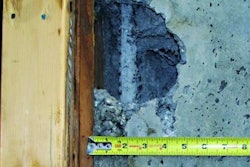For mass transit fans, the November rejection by Hillsborough County voters of a light rail plan eventually destined for all of Tampa Bay was a tough loss.
But there's fresh buzz criticizing the high-speed rail project linking Tampa and Orlando. The link - a separate project from regional light rail - is mostly paid for with federal funds and would serve as a first leg of a statewide high-speed system.
Recent coverage questioning potential ridership on the 84-mile Tampa-Orlando line has speed rail backers nervous. An analysis by the Reason Foundation, a libertarian think tank with ties to Florida Gov. Rick Scott, warns the link could suffer cost overruns and require taxpayers to subsidize its operations.
That's the type of conclusion likely to earn the rail project a thumbs down from a budget-pressed Gov. Scott.
A double whammy loss of light and high-speed rail lines would be a major transportation setback. It would send a message to the U.S. business community that Central Florida is risk averse, lacks the ambition to get on with fresh infrastructure, and also lacks the right culture for look-to-the future corporations contemplating geographic expansion.
Enter Barney Bishop. The veteran head of the Associated Industries of Florida lobbying group in Tallahassee wants the high-speed rail project to succeed. In an interview, he said he wanted to counter the recent burst of negative press about the project with some positive news.
Bishop said AIF will spearhead a newly created Florida High Speed Rail Coalition to "ensure this valuable project remains on track."
The coalition will include private-sector companies that want some of the project's jobs and the prestige from being a part of Florida high-speed rail, he said.
Bishop stressed the Orlando-to-Tampa project will not only bring 5,000 construction jobs to Florida "at a time when we desperately need them," but also make an "international impression as the home of the first high-speed rail of its kind in this country."
More employment and international prestige should appeal to Gov. Scott and his mission to create Florida jobs.
Recent press coverage of Senate President Mike Haridopolos' stand on this project has been misinterpreted, Bishop says. While the senator does not support state funds for high-speed rail, that does not mean he is against the rail project, Bishop suggests.
This same week, Florida Rail Enterprise executive director Kevin Thibault explained a policy shift to a state Senate committee. Any private group that wins the right to build and operate the Tampa-Orlando route must also assume financial responsibility if cost overruns occur.
That's in synch with Bishop's coalition. The immediate goal, the AIF chief said, is to give the rail project enough time to solicit bids from private rail groups. That may take until fall.
Any state decision to nix the project would be counterproductive to Florida, Bishop maintains.
Bishop's bottom line? Secure the billions in federal dollars already given to Florida and work with private industry to make the project financially palatable.
If Gov. Scott decides to kill the Tampa-Orlando line, Florida loses the $2.4 billion or so in federal funding. It won't be used to pay down the national deficit. Another state will get it to build high-speed rail.
That's a decision Florida must not make hastily.
Contact Robert Trigaux at [email protected]


















